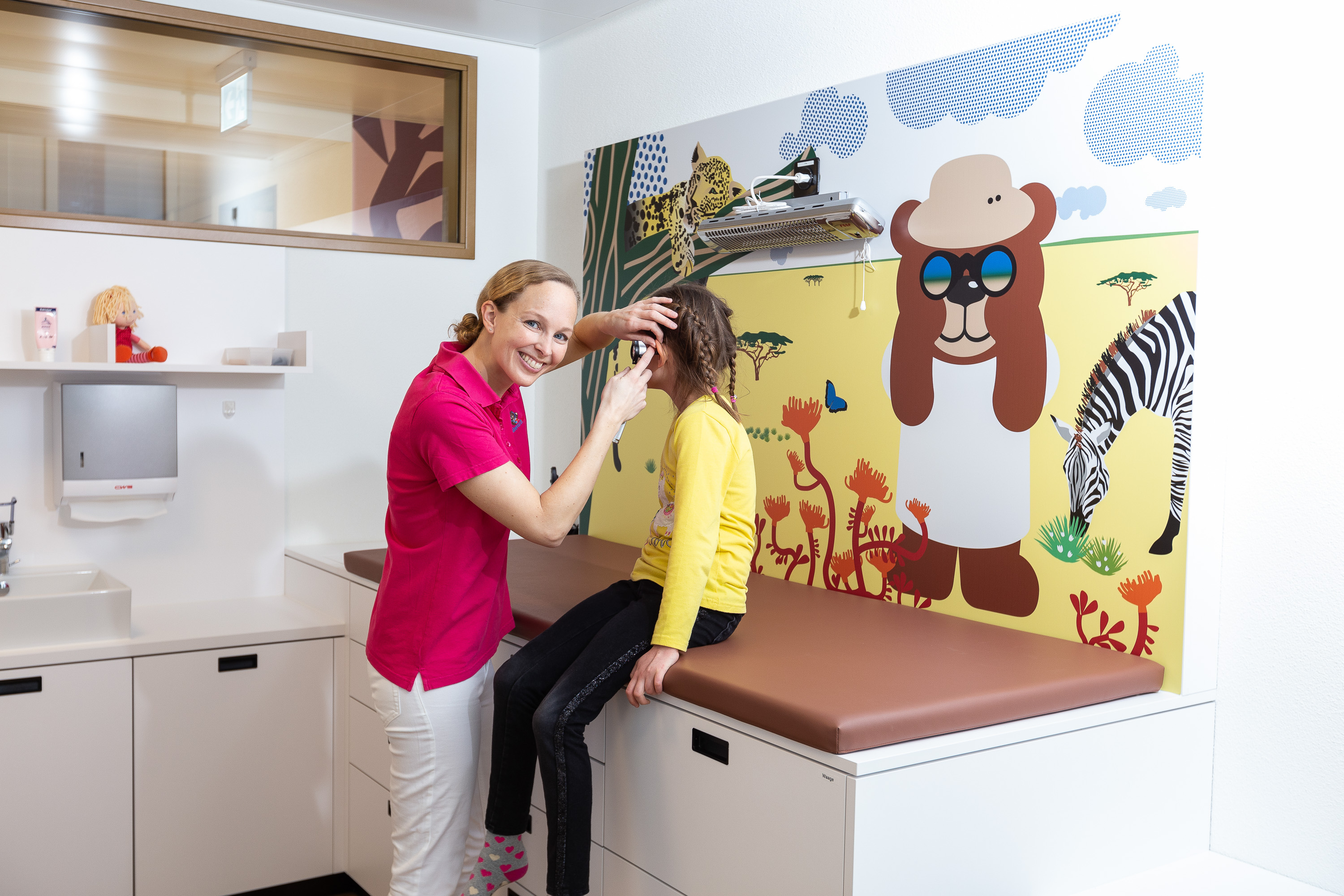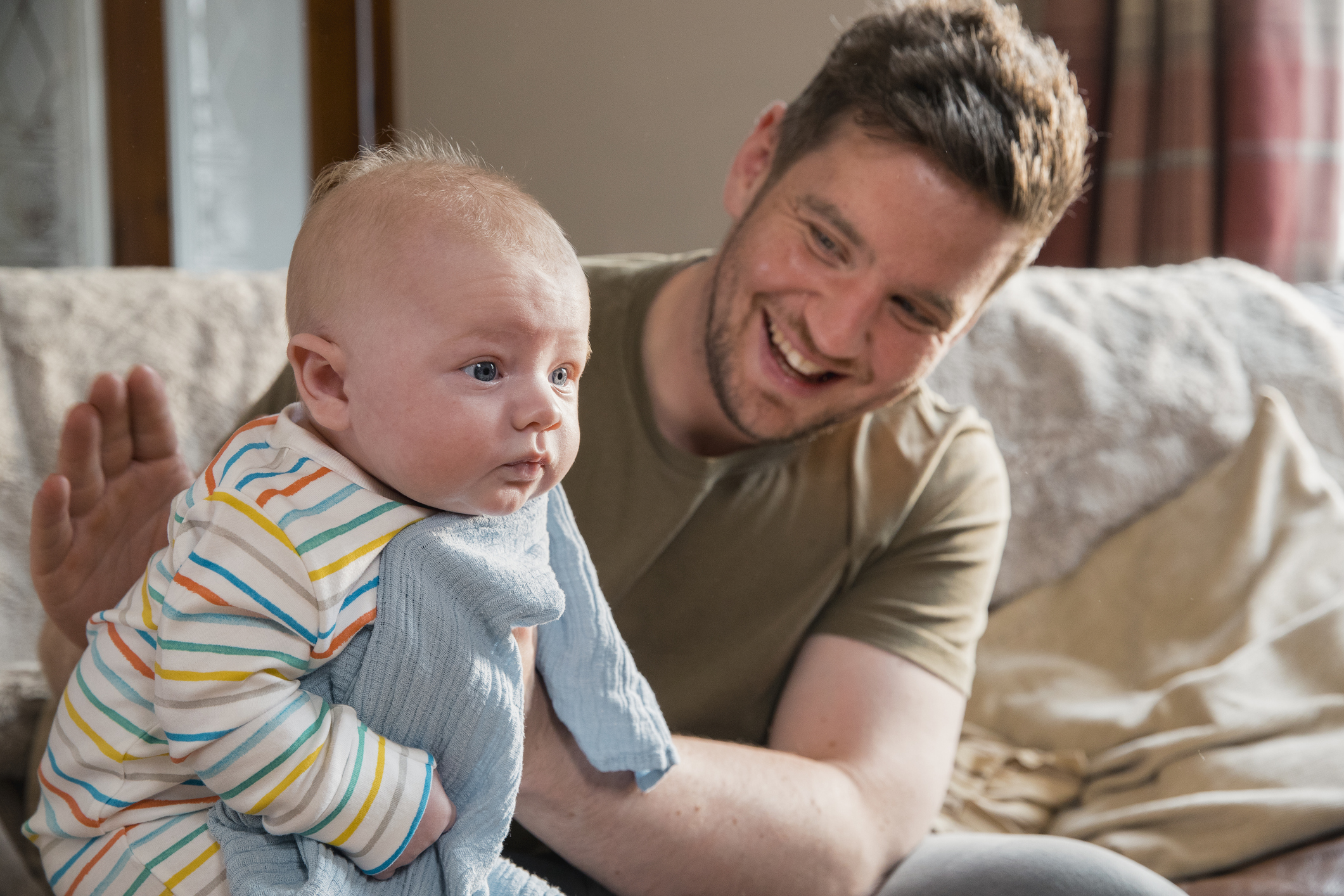Smarter Medicine – the "Top 5" for pediatrics
 In the media, "Smarter Medicine" and "Top 5" lists are often discussed. But what exactly does that mean, what is this "Top 5" for pediatrics? What do I need to know as a mother or father? Our own Ms. Sara Straub, specialist in pediatrics and adolescent medicine, provides more information:
In the media, "Smarter Medicine" and "Top 5" lists are often discussed. But what exactly does that mean, what is this "Top 5" for pediatrics? What do I need to know as a mother or father? Our own Ms. Sara Straub, specialist in pediatrics and adolescent medicine, provides more information:
What is meant by "Smarter Medicine"?
Adequate and high-quality care for children and adolescents is particularly important to us. The patient and their needs are at the center of everything we do, and we treat them with the utmost care and based on the latest knowledge. Empathic involvement of parents and children in treatment is essential and the highest priority in pediatrics.
"According to the latest knowledge" also means, among other things, avoiding unnecessary and potentially harmful treatments for our little patients. This is the principle of Smarter Medicine—unnecessary medical measures should be avoided. The right therapy is often not synonymous with lots of examinations and strong medication.
What are the Top 5 Smarter Medicine treatments for pediatrics?
There are some conditions that occur very frequently in children and give cause to visit to the pediatrician. Examples include gastrointestinal infections, ear pain, coughs, certain inflammations of the respiratory tract and acid regurgitation (reflux) in infancy. Even though these conditions are extremely common, providing the optimal treatment and advice for parents is not always easy in these cases.
What can I do about gastrointestinal infections? Does my child need an infusion?
Many children experience some kind of gastrointestinal infection throughout their lives. This is accompanied by vomiting and diarrhea, sometimes with a fever as an accompanying symptom. If the child stops being able to drink well or vomits immediately afterwards, they can lose a lot of fluid very quickly. Many parents are therefore rightly concerned about their children's fluid balance and are worried if they refuse to drink or eat.
The first rule in the context of the Top 5 list for pediatrics is that intravenous infusion to replenish fluid is only necessary in very rare cases. First of all, your child should always try to drink fluids by the mouthful. In our practice, this is done under supervision and with guidance from our medical assistants.
If this doesn't work, the next step, before intravenous administration, may be to insert a gastric tube through which fluids—such as tea, breast milk, diluted juice, or a sugar-electrolyte solution—can be administered.
Most gastrointestinal infections are over after a few hours and the children recover quickly. However, especially with infants there is a risk of rapid dehydration in the event of significant fluid loss, so a visit to the pediatrician is essential in any case.
My child has an earache—do they need an antibiotic?
Especially in the summer months when children swim a lot, many children come to the pediatrician with ear pain. The ears are also often affected by viral infections with a runny nose—in summer and winter.
The diagnosis usually becomes clear quickly—a middle ear infection. In the past, children were treated very quickly with an antibiotic.
However, many studies have shown that middle ear infections are often caused by viruses, meaning antibiotics are not necessary. Antibiotics only help with bacterial infections, not viral infections.
It is therefore advisable to treat middle ear infections with painkillers, e.g., with Algifor, and to wait for a while. The ears are then checked again after 2–3 days at the latest. Many ear infections can be treated without antibiotics, which avoids side effects and helps the antibiotics to remain effective in the event of a bacterial infection.
My child has a cough—do I need cough syrup?

Coughing is probably one of the most common symptoms in a pediatric practice. Coughing is generally the body's natural defense mechanism to get rid of viruses. Many parents are very worried about coughs and ask for cough syrup. However, cough syrups often contain many ingredients and usually do not have the desired effect. On the other hand, studies have shown that milk with honey is a proven effective treatment for coughs in children over 1 year of age!
In some cases, an expectorant or cough suppressant medication or inhalation therapy may still be necessary. The pediatrician must then decide this on a case-by-case basis. The pediatrician must also rule out the possibility that the cough is being caused by a more serious illness, such as pneumonia.
My baby has bronchiolitis—should inhalation with salbutamol or cortisone always be used?
If a baby has bronchiolitis—inflammation of the smallest airways—parents are understandably very concerned, and pediatricians take the condition very seriously as well. Such inflammations are triggered, for example, by a special virus, the RS virus (Respiratory Syncytial Virus). In the past, immediate treatment with cortisone and medication was often used to dilate the bronchi.
However, studies have shown that the use of these medications neither leads to fewer hospital admissions nor can it shorten necessary stays in hospital. In fact, side effects can occur—such as heart palpitations or fungal infections in the mouth with cortisone therapy. As a result, these medications should not be administered in the first place.
The situation is different if children are suffering from inflammation and narrowing of the larger bronchi, i.e., from bronchitis. In this case, inhalation with salbutamol and cortisone is often the only effective therapy.
If your child is experiencing breathing problems, you should always take them to visit a pediatrician. The younger the child, the earlier you should take them.
My baby keeps burping—isn't there a medication for that?

Many babies regurgitate a little breast milk or formula after feeding and burp a lot in general. Parents then worry that their child is not gaining weight properly and is distressed by regurgitating milk, and they start asking about medication.
Smarter Medicine has included in its top 5 treatment strategies avoiding the routine use of acid blockers to treat gastroesophageal reflux (GERD).
The burping itself is a physiological, i.e., completely normal, process. It should only be treated if it occurs very severely and the baby spits up a lot of milk.
It has been shown that the symptoms often do not improve with acid blockers and that they always have side effects. These medications should therefore only be used in consultation with an expert and only if all other supportive measures, such as thickening food, elevating the upper body, and ensuring proper burping between meals, are unsuccessful.
Conclusion: What can we learn from these important guidelines?
The bottom line is that children often experience many viral infections and the immune system has to deal with them naturally. Medication is not always necessary.
An assessment by a specialist is nevertheless important in order to recognize very sick children immediately and then to initiate the necessary therapy quickly. Dangers should not be overlooked and the fears and concerns of parents and children must be taken seriously.
In principle, however, "over-medication" and "over-treatment" should be avoided and supportive therapy approaches should be initiated first. Many of our grandparents' old home remedies have proven effective for decades—and there's a reason for that!
August 25, 2021, Kinderarzthaus in Zürich Stadelhofen


